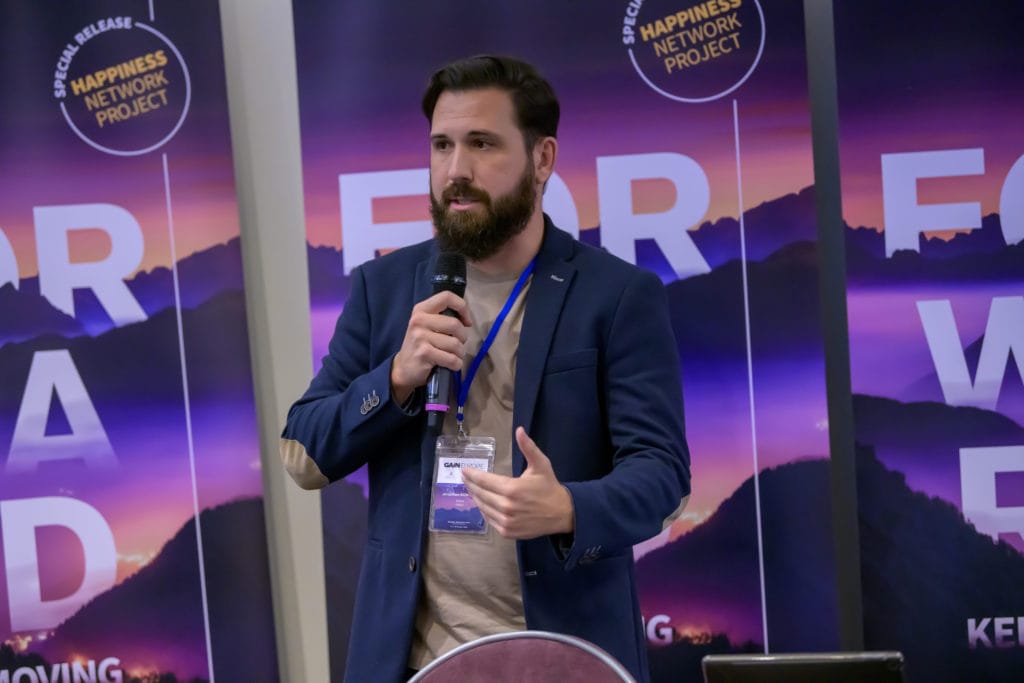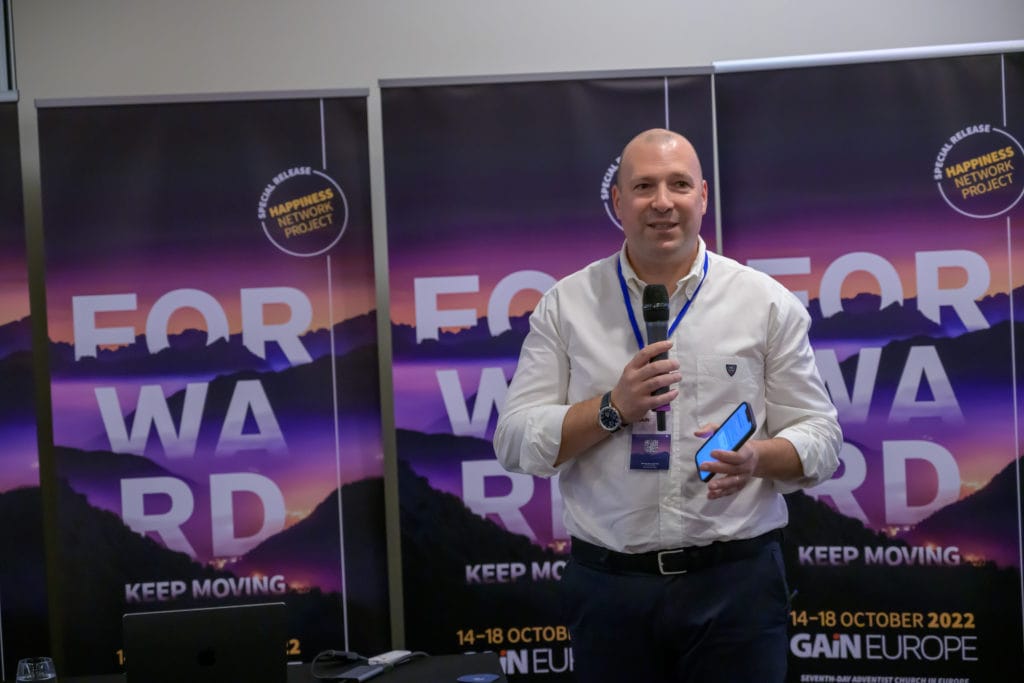‘God Has Called You to Be the Bible to Non-Christians’
GAiN Europe 2022 opens with an invitation to do mission in a post-Christian society.
October 18, 2022 | Bucharest, Romania | Marcos Paseggi, Adventist Review
More than 180 Seventh-day Adventist communicators met in Bucharest, Romania, for the 2022 Global Adventist Internet Network (GAiN) Europe on October 14-18, 2022. The “Forward: Keep Moving” event gathered communication leaders and experts from 35 countries who work in Adventist journalism, radio, TV, and social media.
Most of the communicators who registered for GAiN Europe serve in the Adventist Church’s Inter-European Division (EUD) and Trans-European Division (TED) regions. Some participants, however, came from as far as French Polynesia, Mongolia, and Mexico, leaders said. A group of Adventist communicators from Ukraine also drove in a van for hours to attend.
First In-Person Event

[Image: Global Adventist Internet Network]
TED communication director David Neal also welcomed communicators to the in-person event. “Zoom is fantastic, but relationships go deeper than Zoom,” he said. “And this is a time to learn, to network, to share, to encourage each other and to develop relationships,” he said.
Hope Media Europe producer Adrian Dure, who co-hosted the opening program with TED associate communication director Vanessa Pizzuto, agreed. “Presentations are important,” Dure told participants. “But far more important for this event is the fact you are here.”
GAiN Europe 2022 leaders shared the network’s history and what it now offers communicators. The program included discussions about GAiN Europe’s vision and offered focused presentations by experts, along with workshops and case studies. But above all, as EUD communication director Paulo Macedo emphasized on opening night, GAiN Europe is a spiritual event. “The most important thing is that we seek the presence of the Lord,” he said.

Jonathan Contero, Associate Director, Center for Secular and Post-Christian Mission, Global Mission Centers (GC) giving the keynote address at GAiN Europe 2022, Sheraton Bucharest Hotel, Bucharest, Romania, October 14-18, 2022. [Photo: Tor Tjeransen / Adventist Media Exchange (CC BY 4.0)
The opening program keynote speaker was Jonatan Contero, associate director of the Adventist Church’s Global Mission Center for Secular and Post-Christian Mission. Contero, who some years ago started an Adventist congregation in Madrid, Spain, to connect with secular and post-Christian people, discussed ways of reaching this growing segment of the population.
Contero explained that secular, post-Christian people are so hard to reach that we might give up on them. And the hurdles are real, he said. “You can’t talk to them about prophecy or the Sabbath because they don’t even believe in God or the Bible. They would tell you, ‘I don’t care.’”
Adapting to Meet People Where They Are
He explained that even though we might share the same symbols with secular and post-Christian people, we assign them different meanings, which makes our communication unintelligible. “Sometimes we talk too much to Adventists, to ourselves. But we need to adapt ourselves to the people we want to reach,” Contero said.

Inter-European Division communication director Paulo Macedo welcomes more than 180 participants to the 2022 Global Adventist Internet Network Europe convention in Bucharest, Romania, on October 14. [Photo: Tor Tjeransen / Adventist Media Exchange (CC BY 4.0)
Above all, Contero said, it’s about following the example of Jesus, who brought humanity “under the transforming power of truth by meeting them where they [were],” he read again from White (Evangelism, p. 140).
Serving and Speaking Their Language
Quoting the missionary example of the Apostle Paul, Contero explained that one of the ways of connecting with secular people is serving them. “How many times have you become a servant of non-Christian people?” he asked.
Connecting also implies speaking in a language they can understand, Contero said. He explained how in Acts 2, the Apostle Peter gave a powerful speech by building a relationship and establishing common ground with his hearers. Only then did Peter move to discuss the point he had wanted to make all along.
Peter’s example is also a call for us, Contero said. Everyone should ask themselves, “How many times [do] I preach, think, or speak with non-Christians in mind?”
Overall, Contero acknowledged, connecting with secular and non-Christian people is a challenging enterprise. “Sometimes, it might feel that there is no reward, but we are called to do it. God has called you to be the Bible for non-Christians,” he said. “With your approach, with your words, and with your behavior, you become the first Bible they are going to read.”